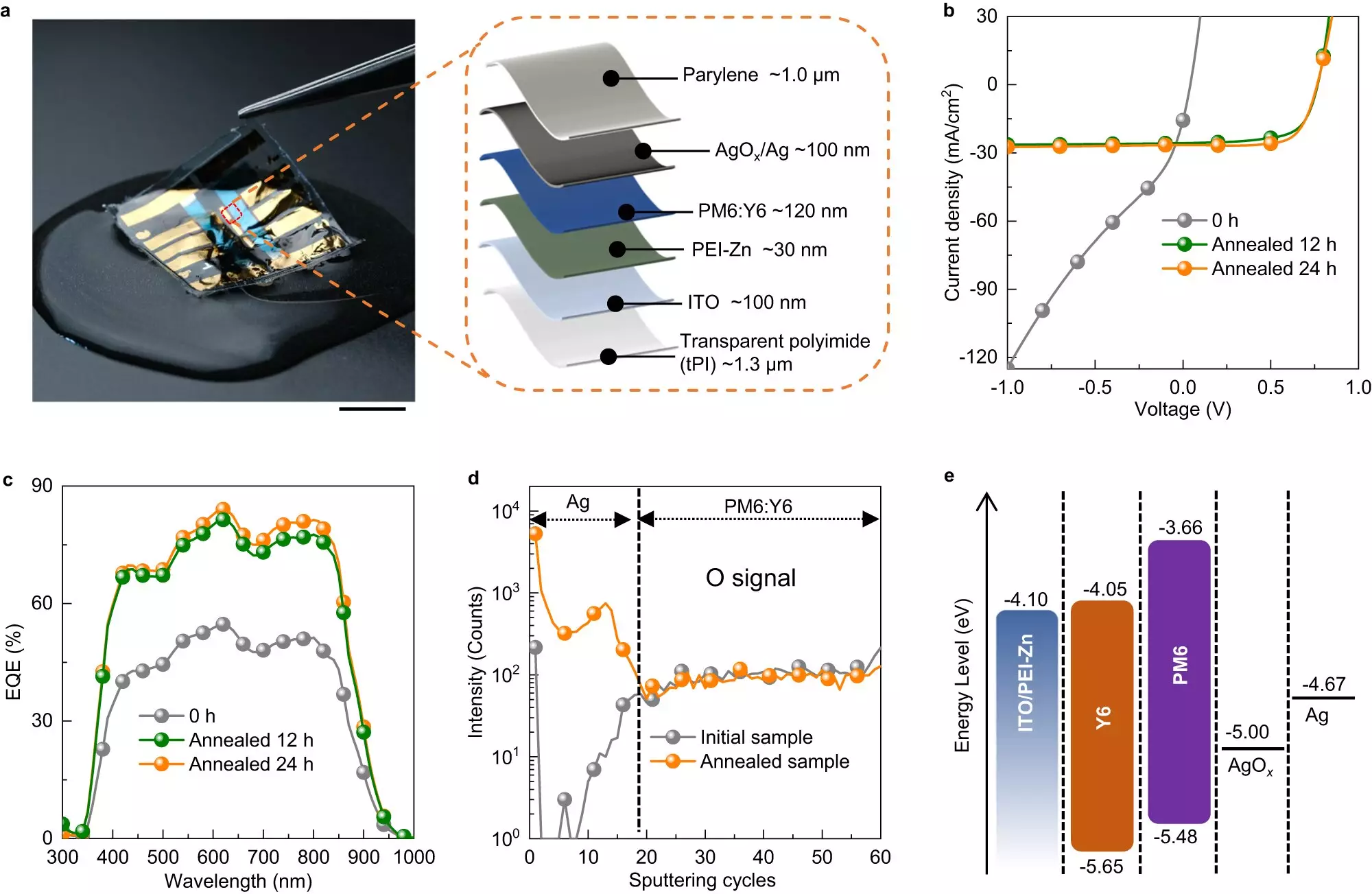The development of organic photovoltaic films has opened up a world of possibilities in the realm of wearable electronics. These devices can be seamlessly integrated into clothing, allowing for innovations such as medical monitoring devices that do not require frequent battery changes. One of the major obstacles researchers have faced in this field is achieving waterproofing without sacrificing flexibility. Previous attempts to make organic photovoltaic films waterproof often resulted in the decrease of film flexibility due to the addition of extra layers.
In a groundbreaking study published in Nature Communications, researchers from the RIKEN Center for Emergent Matter Science and their collaborators have successfully overcome this limitation. By taking a unique approach to the design of organic photovoltaic films, the scientists were able to create a film that is both waterproof and flexible. Unlike traditional methods that involved layering the electron hole transport layer sequentially, the researchers deposited the anode layer, made of a silver electrode, directly onto the active layers. This innovative technique resulted in improved adhesion between the layers, increasing both the film’s waterproofing capabilities and flexibility.
After the successful fabrication of the organic photovoltaic film, the researchers conducted rigorous testing to evaluate its performance under various conditions. The film was immersed in water for four hours, and despite the harsh conditions, it retained an impressive 89% of its initial performance. Subsequent tests involved stretching the film by 30% underwater 300 times, which demonstrated the film’s resilience by maintaining 96% of its performance. In a final test of durability, the film was subjected to a full washing machine cycle, a feat that had never been achieved before in this field.
Future Implications
The implications of this research are far-reaching, offering a glimpse into the future of solar technology and wearable electronics. The development of waterproof and flexible organic photovoltaic films opens up new possibilities for integrating solar cells into everyday items such as clothing, bags, and accessories. With the ability to withstand harsh environmental conditions, these innovative films pave the way for sustainable and energy-efficient solutions in various industries. Researchers believe that the method developed in this study can be further optimized and applied in a wide range of applications, promising a brighter and more sustainable future powered by solar technology.
The research conducted by the team at the RIKEN Center for Emergent Matter Science represents a significant advancement in the field of organic photovoltaics. By addressing the challenge of waterproofing and flexibility, the scientists have paved the way for the development of innovative solar technology with a wide range of practical applications. The successful creation of a waterproof and flexible organic photovoltaic film marks a major milestone in the pursuit of sustainable energy solutions and wearable electronics. As the research continues to evolve, we can look forward to a future where solar power is seamlessly integrated into our daily lives, providing us with a clean and renewable source of energy.


Leave a Reply